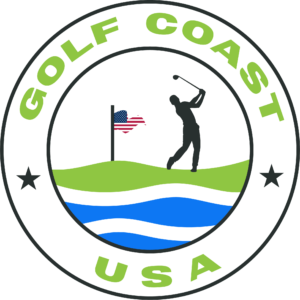Title: A Spectrum of Fairway Fauna: Unmasking the Unique Golf Course Wildlife of Myrtle Beach
Myrtle Beach, the seaside gem of South Carolina, is renowned as the mini golf capital of the world. But beyond its vibrant greens and the gentle Atlantic breeze lies a hidden marvel that has managed to blend seamlessly into these manicured landscapes – the wildlife that thrives within the region’s golfing havens. Throughout the numerous splendid courses, one can witness a diverse range of creatures, from alligators on the fairways to ospreys soaring overhead. This article ventures off the beaten golfing path, teeing into the unique and mesmerizing wildlife of Myrtle Beach’s golf courses.
Possibly the most attention-grabbing of all animals are the alligators. These massive reptiles, native to this part of the coast, make frequent appearances in golf courses such as the Barefoot Resort & Golf and TPC Myrtle Beach, which borders the Lowcountry wetlands. Alligators are often spotted basking in the sun along the water hazards, exhibiting an intriguing spectacle for golfers. However, they deserve respect and a considerable distance, as they are wild animals.
Capitalizing on the golf green’s coexistence with nature and their proximity to the Atlantic, Myrtle Beach golf courses host a variety of avian species. The Red-tailed Hawk, known as the “king of the golf courses,” is often sighted gracefully gliding above the fairways. Its keen eye and formidable hunting prowess make it the lord of these aerial corridors.
The picturesque, lake-dotted landscapes of golf courses such as the Dunes Golf and Beach Club serve as effective magnets for waterbirds. Double-crested Cormorants, Great Blue Herons, and Anhingas can be frequently spotted here, showcasing their expert fishing skills. Among the four Myrtle Beach golf courses situated within the Audubon Cooperative Sanctuary Program are the Pine Lakes Country Club and the Man O’ War Golf Club, whose water bodies brim with waterfowl, including the majestic American White Pelican.
Ospreys, aka sea hawks, also enjoy the coastal landscape of Myrtle Beach’s golf courses. Multiple courses, including the Grand Dunes Resort Club, are graced by these powerful flyers’ presence. Their mid-air maneuvers, especially when they emerge from a successful fishing dive clasping a hefty catch, are a spectacle worth dropping your putter for.
But it’s not all about the larger species. Smaller critters like squirrels, rabbits, and a variety of butterflies add color to the undergrowth. Golfers might spot Eastern Cottontail Rabbits dashing across the grounds of courses like the Myrtlewood Pinehills or notice the delicate flutter of a Monarch butterfly in the Heritage Club gardens.
The nocturnal golf course residents can’t be overlooked either. Bats such as the Eastern Red Bat find solace in the green corridors of courses like Pawleys Plantation Golf Club. They perform a vital role in maintaining a healthy ecosystem by assisting with pest control, so when you marvel at the pristine greens, spare a thought for these stealthy midnight gardeners.
And finally, if you are lucky, you might even catch a fleeting glimpse of a rarer mammal, like a bobcat or coyote, skirting the fairways in the Deer Track Golf Resort or the Wild Wing Plantation. Golf courses providing a transient corridor for these stealthy mammals highlight the remarkable coexistence between wildlife and golfers in Myrtle Beach.
The golf courses of Myrtle Beach are far more than immaculate greens and challenging bunkers. They serve as important habitats for a range of wildlife, from towering birds of prey to harmless reptiles and busy insects. So as you walk these vibrant fairways, keep an eye out – not just for your stray golf ball – but for the outstanding array of wildlife that call these stunning courses home. Our golfing endeavors have created a unique, shared environment, where human and animal cohabitants can appreciate the beauty of Myrtle Beach’s coastal wonderland.

Leave a Reply